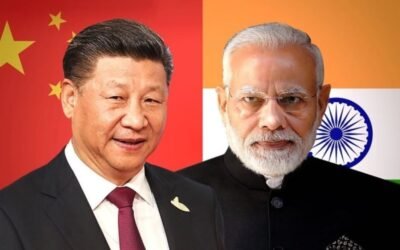Pakistan’s Interior Minister, Mohsin Naqvi, met with his Bahraini counterpart, General Shaikh Rashid bin Abdullah Al Khalifa, on 10–12 July in Manama to reaffirm and expand security collaboration between the two nations.

Source: Dunya News
Expanding the Joint Security Committee
Both leaders pledged to revitalise the Pakistan–Bahrain Joint Security Committee, enhancing its role in intelligence-sharing and coordinated action across counter-terrorism, anti-narcotics, and human-trafficking operations
“Enhancing cooperation in counter‑narcotics and anti‑human trafficking efforts is the need of the hour.” – Mohsin Naqvi, speaking on the sidelines of the meeting
General Al Khalifa emphasised Bahrain’s commitment to the partnership, describing Pakistan as “a valued security partner” and expressing optimism about enhanced operational effectiveness.

Source: X/@radiopakistan
Diplomatic Accolades and Symbolism
Minister Naqvi was met with full protocol by Bahraini officials at Manama International Airport and received a ceremonial guard of honour at Manama Fort, symbolising the high level of bilateral esteem. Senior figures, including Deputy Interior Minister Lt Gen Adel bin Khalifa Al‑Fadhel, Bahrain’s Chief of Public Security, and Pakistan’s Ambassador Saqib Rauf, were also present.
Shared Security Challenges
Both ministers identified counter-terrorism, cross-border narcotics trafficking, and prevention of human smuggling as critical areas that demand collective action. With Pakistani expatriate communities in Bahrain and frequent regional travel, coordinated law enforcement is vital to ensuring public safety.
Strategic and Institutional Context
The security agreement strengthens a legacy of defence and intelligence cooperation dating back to Pakistan’s 2021 deployments, which included joint training among Bahraini National Guard units and exchanges with Pakistan’s Army and Navy. Pakistan’s CSTF‑150 and maritime-security operations in the Gulf have also benefited from Bahraini logistical support.
Institutionally, the enhanced Joint Security Committee and ministerial-level coordination underscore a shift toward organised, policy-driven partnership beyond ad hoc operational cooperation.
Regional and Strategic Significance
- Gulf diplomacy: For Pakistan, aligning with Bahrain bolsters its security network within the Gulf Cooperation Council.
- Bahraini priorities: With expatriate safety and transnational crime concerns, Bahrain values Pakistan’s experience in counter-terrorism and border control.
- Global alignment: Coordination addresses broader threats from extremist networks and narcotics trafficking linked to regional instability.
Outlook and Implications
This security pact marks a tangible deepening of Islamabad-Manama ties, with a robust institutional framework now in place to tackle overlapping threats. The renewed focus on structured coordination through the Joint Security Committee suggests that both nations intend to shift from symbolic gestures to operational synergy.
Future engagement could extend to:
- Regular joint exercises involving anti-trafficking and counter-terror units.
- Expansion of intelligence-sharing protocols.
- More frequent high-level visits and ministerial-level coordination.
The Pakistan–Bahrain agreement reinforces a long-standing, yet previously informal, framework into a committed bilateral partnership on critical security fronts. For Pakistan, this complements its broader Gulf engagement. For Bahrain, it offers enhanced operational capability against transnational crime. As both nations face shared threats in a volatile region, the success of this cooperation will depend on effective follow-through, consistent dialogue, and integrated implementation mechanisms.




























